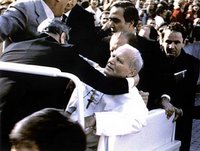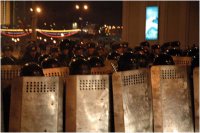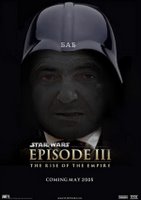 Over the past decade, regionalism has resurfaced on the international political agenda. The demise of bipolar division, globalisation, and rekindled cultural affiliation are but a few causes for such development. In a European context, there is reason to question whether the new regions will prove viable constructions, or if some are but transient phenomena in an overall evolution towards a Europe of the regions. Therefore, even advocates of Baltic Sea regionalism must ask –What are the prospects for a Baltic Sea region?
Over the past decade, regionalism has resurfaced on the international political agenda. The demise of bipolar division, globalisation, and rekindled cultural affiliation are but a few causes for such development. In a European context, there is reason to question whether the new regions will prove viable constructions, or if some are but transient phenomena in an overall evolution towards a Europe of the regions. Therefore, even advocates of Baltic Sea regionalism must ask –What are the prospects for a Baltic Sea region? To prove cohesive, regions should be endowed with political dynamics of their own, driven by distinctive agendas, patterns of interaction and governed by regimes. They may be based on identification, institutionalism or functionalism, driven by subjective factors such as history, culture and identity, or by objective factors such as geography, geo-economics and geopolitics.
The rise of regional co-operationThe idea of Baltic co-operation arose in the late 1960’s out of concern for marine pollution in the Baltic Sea. Environmental protection proved an uncontroversial area for co-operation even for states divided by the Iron Curtain. In 1974 the Helsinki Commission was formed to monitor Baltic marine environment. All the same, it was not until the 1990 Ronneby Summit that environmental issues became a nucleus for extended co-operation. The Summit gathered regional heads of government, and for the first time the – then soviet – Baltic republics were allowed high level international representation. Ronneby led to the foundation of the Council of the Baltic Sea States (CBSS) in 1992, forming the hub of regional co-operation for the decade since. The CBSS was perceived as ”an overall regional forum to focus on needs for intensified cooperation and coordination among the Baltic Sea States” and set as its goal to ”strengthen the cohesion among these countries, leading to greater political and economic stability as well as a regional identity.” The Council comprises the Nordic and Baltic States, Russia, Poland, Germany and the European Commission. The bulk of co-operation has taken place in the large network of issue-specific organisations that developed in the 1990’s. Success or failure for these organisations may determine if the region will gain a common political agenda or be subject to interaction between individual state interests.
A region in the making?
A region of some 70 million people, the Baltic Sea area comprises major population centres of Northern and Central Europe. It looks back on a long tradition of trade and migration dating to the origins of recorded history. Whether dealing with Viking relations with ancient Rus’ or medieval trade within the Hanseatic League, one may find factors of commonality transcending the shores of the Baltic. History may be used as a symbol of unity in the pursuit of a common cultural heritage. In modern times, the Nordic as well as the Baltic States have often been perceived as geographic entities by the outside world. Larger nations, such as Germany, Poland and Russia, have used the region as a gate to either east or west.
If today, a regional identity is to be constructed, substantial development is needed, beside common frameworks and measures facilitating interaction. This includes improving both material conditions for trade and economy, transport and communication, and conditions for social sustainability in fields such as environment and health, democracy and justice. In both areas, directions of overall European integration will prove decisive for further development.
In the early 1990’s, countries of the region fought to grasp the new reality evolving around them. A number of alternatives were considered: formation of a neutral bloc in Central Europe, Baltic States’ admission to the Nordic Council, to mention but a few. Russia’s October 1993 events – the shelling of the White House – combined with Swedish and Finnish 1994 EU accession turned focus towards NATO and EU rapprochement among former Eastern bloc countries. Enlargement became the dominant issue on the agenda. Thus, Baltic Sea co-operation increasingly turned towards the EU, manifested by the 1996 Baltic Sea region initiative. The 1997 Northern dimension emphasised this overall direction. Today, Poland, Estonia, Latvia and Lithuania have all entered the European Union. As the map of Europe has once more been redrawn, how will it affect the Baltic Sea region?
Most Baltic Sea states are small countries, which individually have little leverage in an enlarged Union. Forming EU-policies on the basis of regional interests would offer greater influence on the development of the Union. Polish and Baltic membership in the EU has carried prospects for regional policy co-ordination, which - thus far - have been poorly exploited. However, to form a region, Baltic Sea states must realise that success is achieved as much out of common values as out of common interests. Progress towards this aim has gradually been made by regional co-operation, laying a material foundation for a social sense of regional commonality. To assure long-term regional concord, peoples of the Baltic must develop a feeling of shared destiny – a regional identity.
Dividing lines?
It is argued that international co-operation is best pursued among states of comparable size and power. When larger and smaller states interact, co-operation risks either dominance or neglect from the large. In the Baltic Sea region, Germany, Poland and Russia are giants in comparison to other CBSS-members. While German participation in regional co-operation has been stable, EU-membership has extended Poland’s choice of partners in Union affairs. A country of some 40 million, Poland may regard unilateral action, temporary alliance-building or issue-specific agreement with other actors more attractive than Baltic Sea co-operation. Sharing a common Union framework, the Baltic Sea region may still offer sufficient synergy for both Germany and Poland to find regionalism an attractive alternative. Instead, Russia remains the great outstanding issue.
Inclusion versus exclusion was at the top of the 1990’s European agenda. Among CBSS-states, all but Russia are members of either NATO or the EU. Neither is an option for Moscow. Instead, a socio-economic gap is widening between Russia and the rest of Europe. The old debate whether Russia is part of Europe has also resurfaced. Social and material exclusion of the country from European affairs is evolving. Having conceded to NATO enlargement, Moscow’s main concern is access to the European market. Russian WTO accession may prove a means in relations with Europe. If EU-enlargement to the Baltic Sea region excludes Russia from equal terms of trade with other CBSS-states, Moscow may co-operate only as far as it serves her own interests. This would hamper regional integration. The Baltic Sea region may become the major playground for Europe’s Russian dilemma. In all, if the larger CBSS-states start pulling in different directions, the Baltic Sea region will be a concern only for the small. Such development risks endangering long-term regional stability.
What prospects for a Baltic Sea region?
Hopes are as great as misgivings for a Baltic Sea region. What it all winds down to in the end is if the area actually makes for a region. Functionally, the area may form a region in geographic, economic and political terms. Institutionally, regional co-operation has a distinctive agenda and specific patterns of interaction governed by the CBSS-regime. Whether the region will carry its own political dynamics or simply has served as an antechamber to the EU is, however, too early to say. The future of Baltic Sea regionalism will largely depend on the evolution of a regional identity. It is especially encouraging that business and finance increasingly perceive a single Baltic Sea market. Thus, material conditions would form the social basis for regional development. For over a decade now, we have crossed old borders of political and economic division to interact in the pursuit of a common good. In review of some 15 years’ co-operative development, great progress has been made in the formation of a Baltic Sea region, but its realisation is still too early to predict.
 This evening, I was elected president of the Swedish Society for the Study of Russia, Central and Eastern Europe and Central Asia. How it all came about, is still somewhat of an enigma to me, but apparently I was regarded a good enough candidate to fill the position, which - I must admit - is both flattering and a great honour. However, it was quite unexpected until only a few days ago.
This evening, I was elected president of the Swedish Society for the Study of Russia, Central and Eastern Europe and Central Asia. How it all came about, is still somewhat of an enigma to me, but apparently I was regarded a good enough candidate to fill the position, which - I must admit - is both flattering and a great honour. However, it was quite unexpected until only a few days ago.












